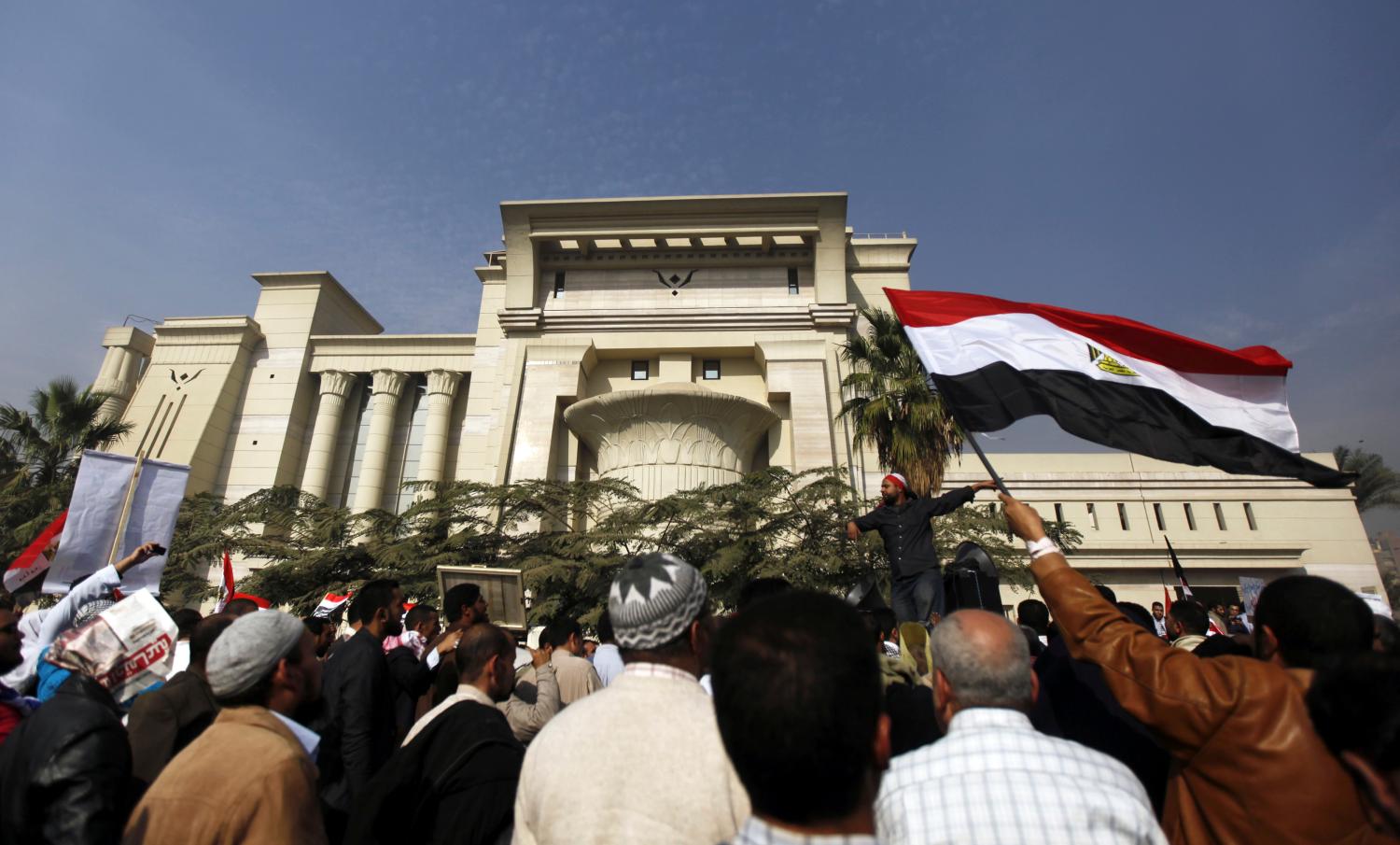INTRODUCTION
Across the Middle East and North Africa, corrupt dictatorships
are currently being swept away with astonishing
speed. To fulfill the democratic promise of this wave of authoritarian
collapse, these nations must build political systems
committed to pluralism, the rule of law, and representative
government. The adherence to written constitutional rules
that structure and limit the exercise of political power is central
to this mission. But how can these countries transform
written constitutional rules into a “respect-worthy” form of
higher law that can actually limit the power of government? Or, in other words, how can these countries make new democratic
constitutions “matter”?
The scholarly answer focuses on the process of constitution-making. It argues that written constitutional rules “matter”
when they are drafted and ratified during a period of extraordinary
popular mobilization. In this process of “popular constitution-making,” constitutional drafting and ratification necessarily
involves irregular mechanisms of extraordinary popular
mobilization, such as extra-parliamentary constitutional conventions
and referendums. By operating outside the rules and
institutions of ordinary politics, the people will be able to act in
their sovereign capacity as the “constituent power.” In this
constituent position, the people themselves become the author
of constitutional rules, maximizing the democratic “legitimacy”of these rules and transforming them into a form of higher
law.
Popular constitution-making is grounded on the belief that a
successful process of constitution-making must be separated
from ordinary politics. This view is so deeply ingrained that a
recent article found that “nearly all the normative and positive
work on constitutions proceeds from the assumption that
constitutional politics are fundamentally different in character
from ordinary politics.” In constructing a normative agenda for
post-authoritarian constitution-making, scholars and commentators
have drawn on this belief to encourage new democracies
to deploy extraordinary popular mechanisms such as constitutional
conventions and referendums in their constitution-making
process.
The experience of constitution-making in post-Communist
Europe and Asia, however, challenges this scholarly consensus.
First, many Central and Eastern European post-Communist
countries have established strong systems of constitutional review
without using popular mechanisms to draft and ratify
their constitutions. Instead, they used inherited, Communistera
institutions and related rules to draft their new constitutions,
a process that Andrew Arato calls “parliamentary constitution-
making.” In these countries, “constitutional change
was so closely associated with political change that it implied a
constitutional politics not readily distinguishable from ordinary
politics.” The relative success of this form of parliamentary constitution-making in building constitutional orders that limited
political power and protected individual rights has led
some scholars to formulate a new “legal” model for democratic
constitutional adoption.
Second, and more disturbingly, the mechanisms and rhetoric
of popular constitution-making have not produced constitutions
that limit the concentration of power and protect individual
liberty in the post-Communist world. Instead, irregular popular
mechanisms like referendums and constitutional conventions
have helped charismatic presidents unilaterally impose
authoritarian constitutions on society. As Stephen Holmes
and Cass Sunstein describe it, “the greater role granted to popular
referenda and extra-parliamentary authorities, the less
constitutionalism matters as a political force.”
This article will explore why popular constitution-making
has led to constitutional dictatorship. Part I will detail the theoretical
underpinnings of popular constitution-making. Part
II will describe how many Eastern European countries rejected
popular constitution-making and instead drafted new constitutions
through ordinary political processes and within the preexisting
legal system. Part III will demonstrate how popular
constitution-making has helped undermine constitutionalism
by providing opportunities for charismatic politicians with little
desire for constitutionally-limited government to appeal to the
people. Claiming to be the agent of the people, these charismatic
figures were then able to justify their decisions to sidestep
parliamentary opposition and push through “authoritarian
constitutions” that concentrated vast power in their own
hands. Part IV will conclude by stressing the importance of
stable rules and institutions in constraining the constitution-making
process.
The Brookings Institution is committed to quality, independence, and impact.
We are supported by a diverse array of funders. In line with our values and policies, each Brookings publication represents the sole views of its author(s).




